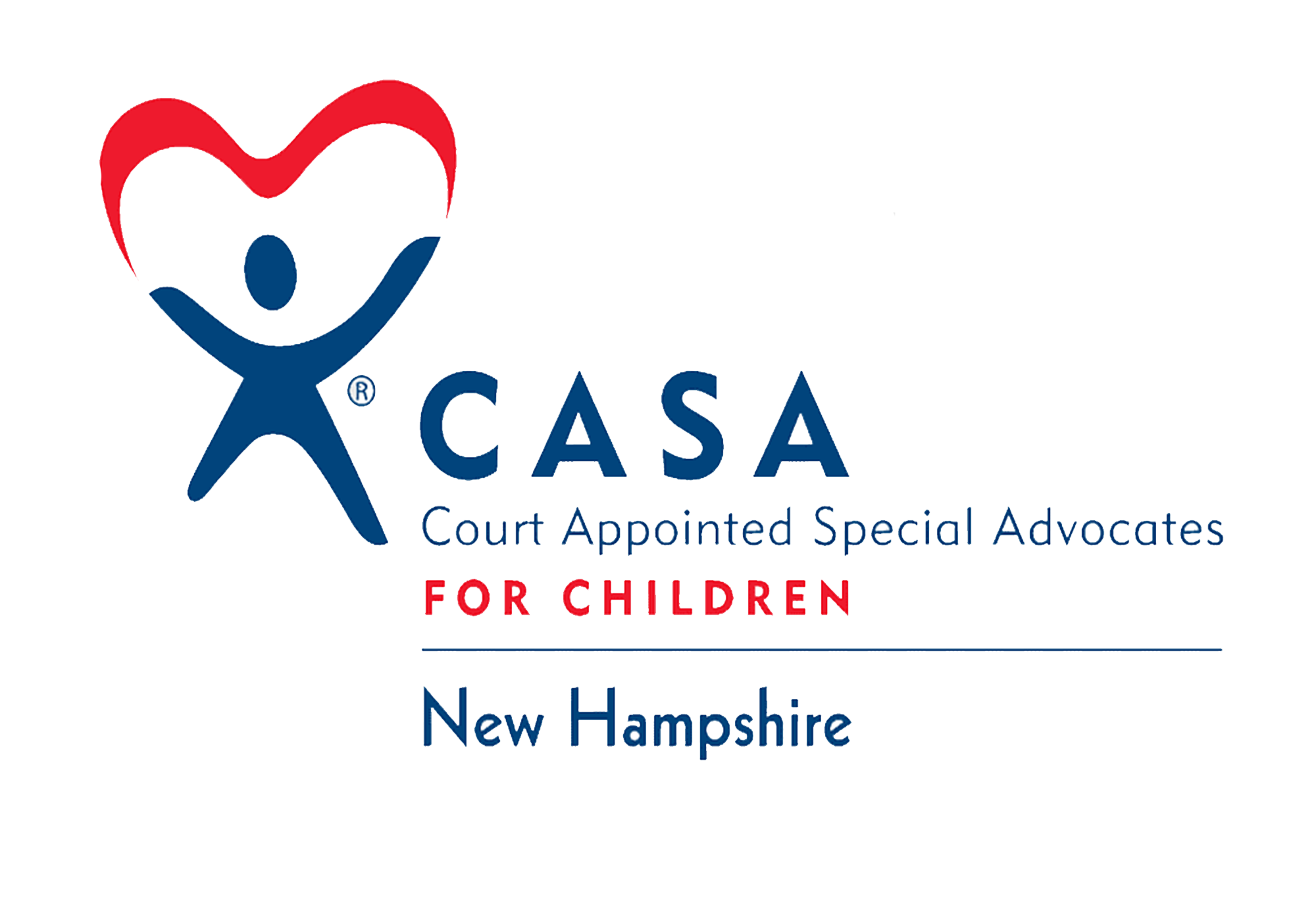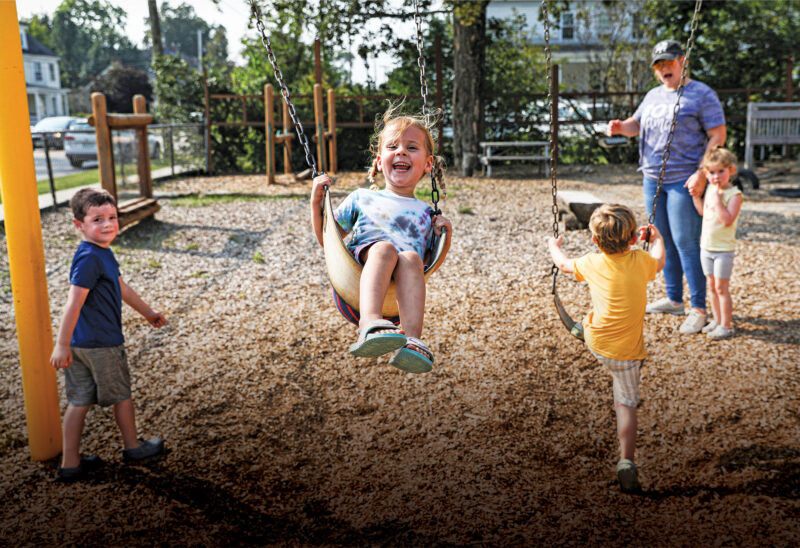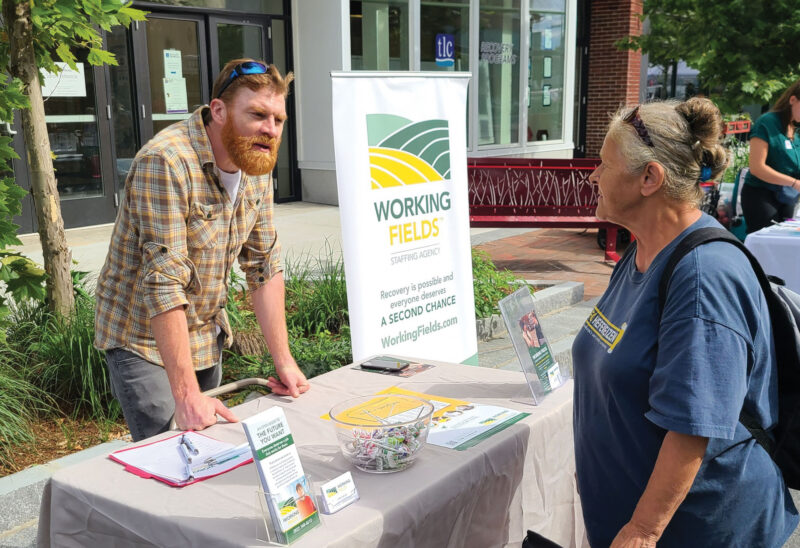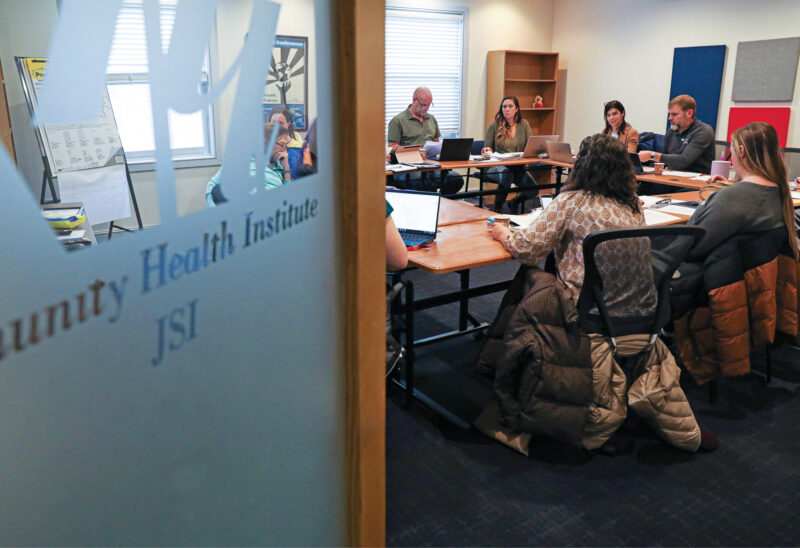Growing up, there were two constants in Madison Dragon’s life: chaos, then CASA.
The chaos included being removed from his home in the second grade because of drug use in the family, then bouncing between different relatives’ homes and temporary foster homes for years.
CASA, Court Appointed Special Advocates of New Hampshire, entered Dragon’s life in the sixth grade. By concentrating on his needs, CASA brought stability, consistency and eventually, adoption, when his parents were not able to care for him.
“Finally, I had someone who was asking my opinion of what I wanted to have happen in my life,” said Dragon, now 25, and a CASA Board member helping children who had been abused and neglected to thrive in safe, permanent homes.
His childhood experiences are far too common in New Hampshire.
Since CASA of New Hampshire was founded in 1989, it has served more than 12,000 children, and counting.
Judges refer a child to CASA when the state opens a child protection case, most often after the child has been removed from their home and is living with a relative or foster family. A volunteer CASA advocate is a child’s representative through years’-long court proceedings, developing a trusting relationship and offering extensive information to help judges decide what is best for the child, including where the child will live.
The goal of CASA and the state’s Division of Children, Youth and Family Services (DCYF) is to reunite families, which isn’t always appropriate or possible, leading to other options such as adoption.
Court referrals to CASA increased dramatically after schools re-opened following the pandemic and teachers resumed personal contact with pupils. Teachers are among the primary sources of suspected abuse or neglect reports.
In the fiscal year ending on June 30, 2022, courts referred 930 cases. As of late March, with three months left in the current fiscal year, CASA had taken 834 cases, a 26 percent increase in new cases from the same period last year. It’s on pace to serve many more children than last year.
At CASA, Director of Community Outreach Erica Thoits said cases are more severe and complex, with more children exposed to “a horrible, perfect storm” which could include drug use at home and becoming victims of stress from continued pandemic fallout such as job losses.
With CASA advocates spending much more time on cases, often three years or more, the nonprofit has stepped up recruitment and training. CASA’s JEDI program – Justice, Equity, Diversity and Inclusion – includes virtual training and language translation and interpreting services for its young clients and advocates that allow it to reach potential advocates throughout the state.
“We are trying to cast a wider net,” Thoits said, including attending community, Pride and multicultural festivals to raise awareness and attract potential new volunteers.
The Charitable Foundation’s support for CASA includes a recent multi-year grant for operating support, language services and recruitment.
CASA accomplishes its life-changing work with 600+ volunteer advocates (called CASAs), who collectively logged nearly 90,000 hours and drove more than a half million miles in Fiscal Year 2022.
“CASAs are a rock for these kids,” Thoits said. “The kids are pulled from everything they know. They must adjust to new caregivers, new school, new teachers, new rules, new everything. Their CASA often is the only thing that stays consistent throughout the time they are in foster care.”
After completing CASA’s comprehensive 40 hours of training, retired veterinarian Robin Stronk became a CASA nine years ago in the Keene area.
Her first case involved a six-month-old boy who had been severely abused. Stronk suspected the infant had a hearing problem not recognized by his daycare or foster caregivers. Testing that she recommended discovered the baby was hearing nothing at all because of fluid in his ears, possibly from the abuse. Treatment restored his hearing and now he is thriving in an adoptive home.
Stronk suspects her veterinary experience played a role.
“I’ve always worked with non-verbal patients,” she said. “I’m attuned to behavioral idiosyncrasies, maybe?”
Whatever the reason, the outcome confirmed her decision to join CASA.
“That cemented that I was in the right place,” she said, feeling fortunate to help vulnerable children, despite the heartbreaking circumstances.
Two children Stronk worked with were adopted, after 2½ years of emotional ups and downs with each of them.
“People say ‘I don’t know how you do this work,’” she said, “but if one child has a better life because of the work I put it, it’s all worth it.”
An important part of an advocate’s work is submitting reports to judges who must decide on the future placement of children who have been abused or neglected.
Manchester Circuit Court Judge Susan Carbon said the advocate’s observations and recommendations are indispensable.
“They truly are the eyes and ears of the kids they represent,” Judge Carbon said, highlighting four “enormous advantages” that CASA provides:
- Consistency for children who experience different foster families, state child protection caseworkers, and even different judges.
- An exclusive focus on the children, so they receive what they need and have their opinions heard in court.
- Intensive child abuse and neglect training for advocates.
- Relying on dedicated volunteers. “They are in it because they love kids and want to devote their personal time improving the lives of kids.”
Judge Carbon and her colleagues trust CASA advocates to provide valuable and current information to help guide their rulings.
“When you have quality information from a CASA, then the outcome for these children will be better,” she said.
That information is based on years of monthly visits with the children.
In Dragon’s situation, his CASA, Deb Zimmerman, helped with homework, chatted, met with teachers and asked “insightful” questions about what he wanted. He trusted her enough to discuss things that weren’t going well – which happened often as he moved from one temporary home to another.
Learning his advocate was a volunteer made a big difference. Dragon remembers thinking: “This person must really want to be here for me, they are not being paid.”
One day Dragon told a high school friend about his situation. The friend said her family would be glad to take him in. Her mom called a college friend who was a CASA advocate. Coincidentally, the friend was Dragon’s advocate. She acted quickly on his behalf. He moved in a couple of days later and in a year, the Dragon family adopted him.
Without daily chaos and uncertainty, Dragon began concentrating on things like school, changing failing grades into A’s.
“Before then, it was survival mode,” he said. “It was: ‘How can I focus on school when I really don’t even know where I’m going to be sleeping tonight?’”
Dragon is the Regulatory Compliance Specialist at Service Credit Union in Portsmouth, requiring confidence and attention to detail as he ensures the organization follows complex regulations.
He doubts he’d be there without CASA and the Dragon family.
“I genuinely think I would have followed in same steps as my biological parents, definitely not working in a financial institution or career field,” he said.







![Indrika Arnold, Senior Wealth Advisor, the Colony Group [Photo by Cheryl Senter]](https://www.nhcf.org/wp-content/uploads/2024/05/Indrika-Arnold-Hero-800x534.jpg)










